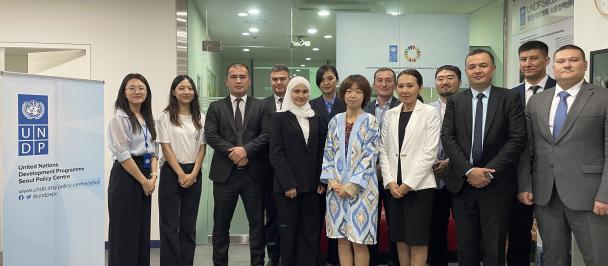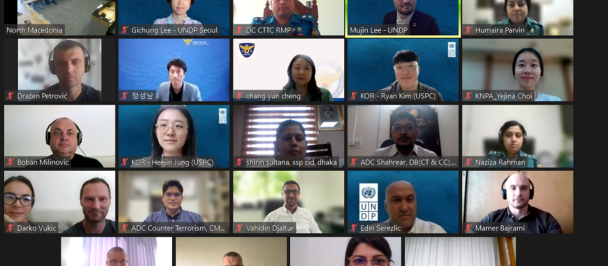
Seoul Policy Centre
South-South and Triangular Cooperation
Catalysing global cooperation for the goals
The UNDP Seoul Policy Centre not only represents UNDP in the Republic of Korea but also shares Korean development experiences and best practices with SDG Partnership countries – as illustrated in the interactive map – and leverages corporate expertise to build partnerships that generate shared value, transform systems, empower local actors and digital platforms. Through the implementation of its Triennial Programme and South-South and Triangular Cooperation Strategy 2023-2025, UNDP Seoul Policy Centre aims to ensure that partner countries are capacitated to pass on the acquired knowledge to their peers to catalyse South-South Cooperation, leading to a multiplier effect and contributing to UNDP's corporate thought leadership on efficient development cooperation.
What is South-South and Triangular Cooperation?
South-South and Triangular Cooperation (SSTC) is a cooperation method that involves two or more countries of the Global South, facilitated by a third party, typically a multilateral institution and/or an emerging donor. This cooperation modality usually involves the provision of technical or financial resources, complementing the previous North-South cooperation method.
SSTC holds increasing importance in shaping the future of sustainable development. The importance of SSTC lies in its ability to promote mutual benefit, collaborative problem-solving, and increased self-reliance among participating nations. This cooperative approach allows countries in the Global South to collectively tackle shared development challenges, leading to tailored solutions. SSTC facilitates the transfer of technology and knowledge, fosters inclusivity in global activities, and champions a collaborative self-sustaining approach to sustainable development. In doing so, it serves as a crucial tool in advancing international development objectives and addressing the specific challenges confronted by developing nations.

 Locations
Locations


















